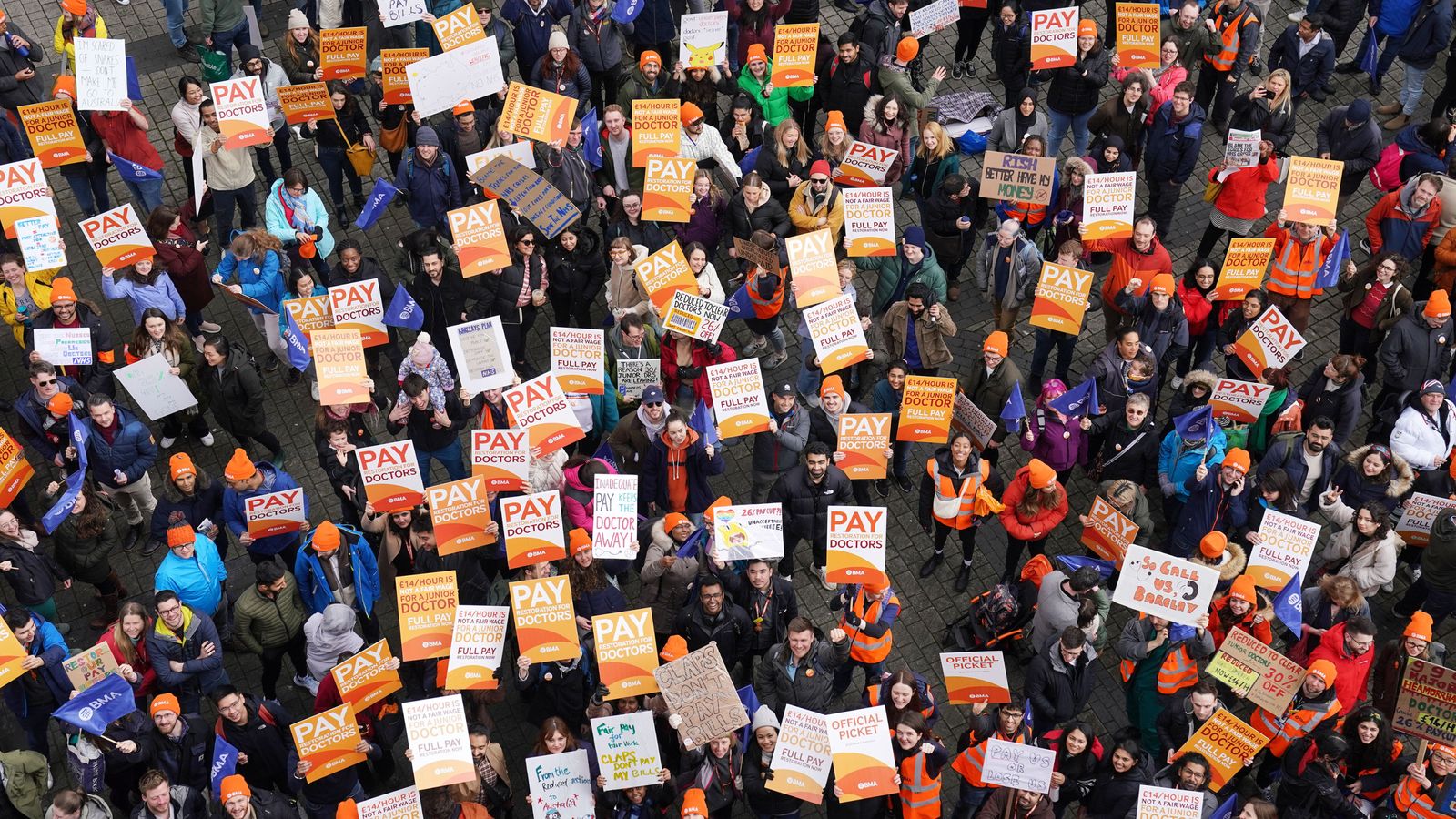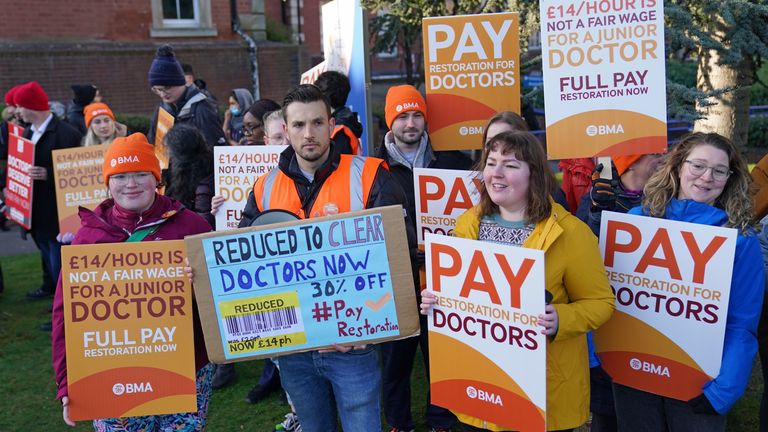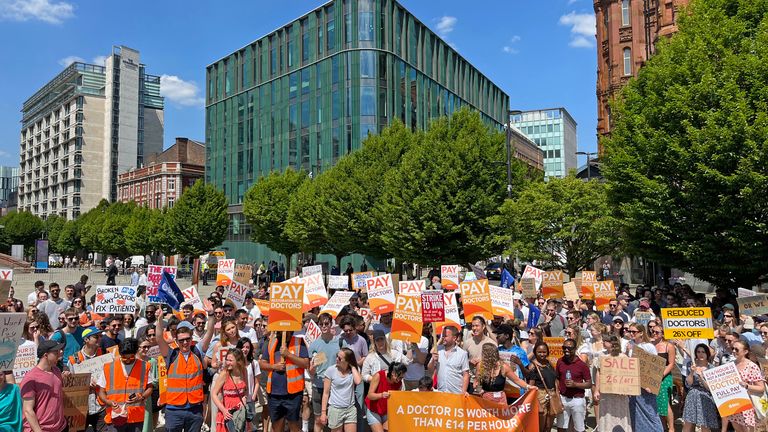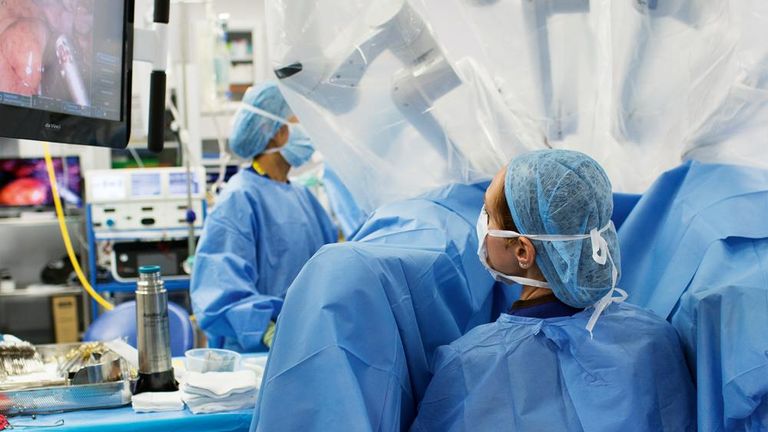Doctors who have been working for the NHS for less than two weeks are among those downing tools this morning and going on strike.
Junior doctors from the British Medical Association (BMA) are staging a four-day walkout from 7am in an ongoing dispute over pay.
Concerns have been mounting over the impact of the strike following a High Court ruling that means the NHS cannot use agency staff to backfill striking workers.
Almost 835,000 appointments have been postponed since industrial action began in December.
But NHS Confederation said the true level of disruption is being “masked” and the number of cancellations could be double this figure.
It said many hospitals have stopped booking in routine activity on potential strike days to prevent causing more disruption to patients on waiting lists, and the action was hampering efforts to reduce the record backlog of care.
Sir Julian Hartley, chief executive of NHS Providers, warned the figure could close in on one million postponed appointments following strikes by junior doctors and consultants in August, as well as a potential further two-day strike by consultants in September.
“There will be a long-lasting effect on patients who have had treatment delayed and on already low staff morale,” he added.
Making room for rescheduled appointments could also mean those further down the waiting list also face delays.
It comes as NHS England revealed 7.6 million people were waiting for treatment at the end of June, the highest number since records began in August 2007.
Health Secretary Steve Barclay said: “Patients are bearing the brunt of the impact of continuous strikes across the NHS, and further action by the BMA will cause more appointments and procedures to be postponed.
“Our award balances the need to keep inflation in check while recognising the incredibly important work they do.
“My door is always open to discuss how to improve doctors’ working lives, but this pay award is final so I urge the BMA to end its strikes immediately.”
The BMA are demanding a 35% increase, arguing junior doctors have lost more than a quarter of their pay over 15 years as a result of salaries not keeping up with inflation.
But the government said a 6% uplift given to junior doctors, which it says is the equivalent to an average increase of 8.8% – in addition to a consolidated £1,250 rise – is “fair and reasonable”.
Read more:
What to do if you need NHS care during strikes
Waiting list at a record high
Joint COVID and flu autumn booster programme pushed back
It’s the fifth time junior doctors have walked out of the wards this year, and the ninth successive month of union action across the NHS.
The action will include some medics who only started their jobs with the NHS last Wednesday.
Dr Omolara Akinnawonu is one of those Foundation Year 1 doctors who started her role on 2 August. She said many medics struggle to make ends meet when they first start in the health service.
“I don’t think many of us as students imagined that we will be having to take to picket lines but I think that it’s necessary because it’s safeguarding our right now and also our future,” the 24-year-old said.
“We sort of graduated at the backfoot and to arrive finally as a doctor to not receive a fair salary is not fair.”
The strike is due to end at 7am on Tuesday.



